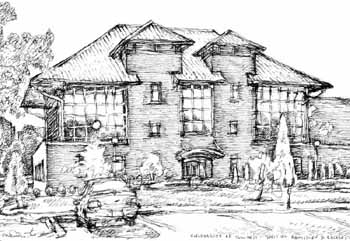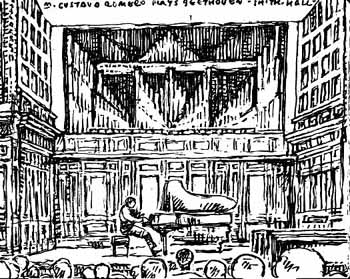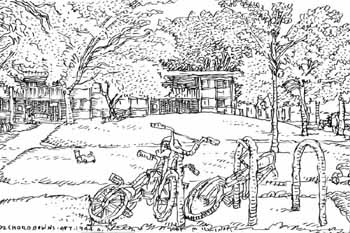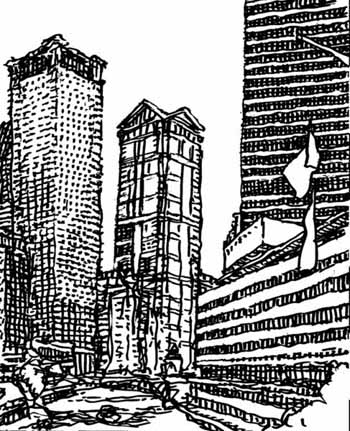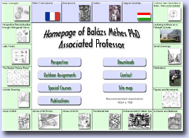

Perspective
Constructions
Outdoor Assignments
Special Courses
¤ Surfaces and Materials
¤ Figures and Movements
Publications
GRAPHIC ART OF SURFACES AND MATERIALS (Course Syllabi for third-year students in Architecture) |
||||||||||||||||||||||||||||||||||||||||||||||||||||||||||||||||||||||||||||||||||||||||||||||||||||||||||||||
Summary
|
||||||||||||||||||||||||||||||||||||||||||||||||||||||||||||||||||||||||||||||||||||||||||||||||||||||||||||||
1. Introduction (An overview of goals and methods; patterns and technical samples; semester's copy- book with previous assignments, cover page design, header and footer, our graphical pre-requisites) 2. Basic Shapes (Rectangular and curved bodies - natural and built appearances) 3. Shadows (Contour-side opposites of tone - the "Local Contrast") 4. Light effects 5. Special phenomena (Reflection, transparency, heaping of shadows and lights) 6. Kinds of materials on simple shapes 7. Comparison of surfaces 8. Coverings (Mall Interior) 9. Perspective Reconstruction by using Orthogonal Views (plus Shadow Construction by Freehand) 10. Spatial planes 11. Colored graphics 12. Details studies 13. Final task (a combined setting) 14. Copy-book documentation (size A/4) of our semester work |
||||||||||||||||||||||||||||||||||||||||||||||||||||||||||||||||||||||||||||||||||||||||||||||||||||||||||||||
| Home work items: |
||||||||||||||||||||||||||||||||||||||||||||||||||||||||||||||||||||||||||||||||||||||||||||||||||||||||||||||
| • Living room interior (plan, wall elevations, perspective, materials) • Villa (façade materials, views, section profile, perspective picture) • Public building interior (coverings, details, perspective picture) • Public building (night and day appearance) • Depicting of Vegetation (tree, bush, flower, harvest, organic forms) • Shadow construction (using orthogonal pictures; taking the cube's spatial diagonal as light beam) |
||||||||||||||||||||||||||||||||||||||||||||||||||||||||||||||||||||||||||||||||||||||||||||||||||||||||||||||
| General Menu |
||||||||||||||||||||||||||||||||||||||||||||||||||||||||||||||||||||||||||||||||||||||||||||||||||||||||||||||
|
||||||||||||||||||||||||||||||||||||||||||||||||||||||||||||||||||||||||||||||||||||||||||||||||||||||||||||||
| Detailed Schedule |
||||||||||||||||||||||||||||||||||||||||||||||||||||||||||||||||||||||||||||||||||||||||||||||||||||||||||||||
I . BASIC SHAPES |
||||||||||||||||||||||||||||||||||||||||||||||||||||||||||||||||||||||||||||||||||||||||||||||||||||||||||||||
Rectangular and curved bodies - Natural and built appearances |
||||||||||||||||||||||||||||||||||||||||||||||||||||||||||||||||||||||||||||||||||||||||||||||||||||||||||||||
| Walking around the Subject |
||||||||||||||||||||||||||||||||||||||||||||||||||||||||||||||||||||||||||||||||||||||||||||||||||||||||||||||
| • Art historical Samples • Theoretical background (Orthogonal pictures, cover perspective, spatial planes) |
||||||||||||||||||||||||||||||||||||||||||||||||||||||||||||||||||||||||||||||||||||||||||||||||||||||||||||||
| Demonstration |
||||||||||||||||||||||||||||||||||||||||||||||||||||||||||||||||||||||||||||||||||||||||||||||||||||||||||||||
• Patterns and techniques (pencil, ink, thick pencil, felt pen, drop-in pen, brush, pastel, pitt-chalk, water color, gouache, mixed experiments and similar) |
||||||||||||||||||||||||||||||||||||||||||||||||||||||||||||||||||||||||||||||||||||||||||||||||||||||||||||||
| Related assignments |
||||||||||||||||||||||||||||||||||||||||||||||||||||||||||||||||||||||||||||||||||||||||||||||||||||||||||||||
| • On-the-spot drill (Furniture with background) • Individual study (Composition made of cylindrical bodies) |
||||||||||||||||||||||||||||||||||||||||||||||||||||||||||||||||||||||||||||||||||||||||||||||||||||||||||||||
| Consultation (Evaluation of cover page and lettering) |
||||||||||||||||||||||||||||||||||||||||||||||||||||||||||||||||||||||||||||||||||||||||||||||||||||||||||||||
II . SHADOWS |
||||||||||||||||||||||||||||||||||||||||||||||||||||||||||||||||||||||||||||||||||||||||||||||||||||||||||||||
|
||||||||||||||||||||||||||||||||||||||||||||||||||||||||||||||||||||||||||||||||||||||||||||||||||||||||||||||
III . LIGHT EFFECTS |
||||||||||||||||||||||||||||||||||||||||||||||||||||||||||||||||||||||||||||||||||||||||||||||||||||||||||||||
| Inspiring art historical samples Theoretical part: • Top light, random light, reflected light • Direct and indirect light • Backlight, touching light • Natural and artificial light Demonstration • Local workshop (Light hunting, white lifting, non-white bases) • Individual work (Home interior with different techniques) |
||||||||||||||||||||||||||||||||||||||||||||||||||||||||||||||||||||||||||||||||||||||||||||||||||||||||||||||
IV . SPECIAL PHENOMENA (Reflection and Transparency) |
||||||||||||||||||||||||||||||||||||||||||||||||||||||||||||||||||||||||||||||||||||||||||||||||||||||||||||||
Art historical quotations
Theoretical background knowledge (Light refraction, construction of mirror picture, covering, space plane dissection, multi-shadows effects, multiplex lights, etc.) My own Gallery Technical demonstration • Local workshop (Corner of mirror planes) • Home work (Curtain wall, glass surfaces) Evaluation of previous task |
||||||||||||||||||||||||||||||||||||||||||||||||||||||||||||||||||||||||||||||||||||||||||||||||||||||||||||||
V . MATERIALS and FORMS |
||||||||||||||||||||||||||||||||||||||||||||||||||||||||||||||||||||||||||||||||||||||||||||||||||||||||||||||
Introduction (Famous Painters of the Nederland) Theoretical knowledge (Appearance of different materials on basic shapes) Samples of my own gallery Still life techniques Local drill (rope, basket, texture, matting) Individual work: Analyzing of Opposites (eligible materials are e. g. metal, glass, stone, concrete, brick, tile, ceramics, clay, sand, wood, leather, plastic, rubber, plaster, vegetables, etc.) Columns of our copy-book's center page are - "Shapes" Rectangular bodies (planes and edges) Curved bodies (cylinder and sphere) Appearances (natural and built) Center page's rows are - "Materials" • Let's choose three kinds of different materials in order to experiment their possible graphical appearance on these enumerated basic shapes! |
||||||||||||||||||||||||||||||||||||||||||||||||||||||||||||||||||||||||||||||||||||||||||||||||||||||||||||||
|
||||||||||||||||||||||||||||||||||||||||||||||||||||||||||||||||||||||||||||||||||||||||||||||||||||||||||||||
VI . SURFACES |
||||||||||||||||||||||||||||||||||||||||||||||||||||||||||||||||||||||||||||||||||||||||||||||||||||||||||||||
Art historical introduction (Vase Pictures) Background knowledge (Layer lines, dropping lines, follow-surface linear web) My own Gallery - samples Demonstrative techniques (lavish, brush, white gouache, etc.) Assignment (Facade element engraved and as a relief) Individual collection work in ink technique (Graphics of different surfaces related to a chosen shape - e. g. the same tool with diverse variations like plain, milled, waved, modeled, spun, etc.) |
||||||||||||||||||||||||||||||||||||||||||||||||||||||||||||||||||||||||||||||||||||||||||||||||||||||||||||||
VII . GRAPHIC ART of COVERINGS |
||||||||||||||||||||||||||||||||||||||||||||||||||||||||||||||||||||||||||||||||||||||||||||||||||||||||||||||
Art historical samples (Vertical, horizontal and tilted planes) Theory (Sequence of drawing, linear perspective, the Guide Plane, the Vanishing Point, How to determine the Horizon, structural oblique lines, proportion measuring, the "Local Contrast", graphical art of material coloring) Demonstration • Public buildings (my own gallery) • Cut-out techniques Assignment • Interior of a Mall • Individual work finished with realistic approach |
||||||||||||||||||||||||||||||||||||||||||||||||||||||||||||||||||||||||||||||||||||||||||||||||||||||||||||||
VIII . PERSPECTIVE RECONSTRUCTION BY USING OF ORTHOGONAL PICTURES |
||||||||||||||||||||||||||||||||||||||||||||||||||||||||||||||||||||||||||||||||||||||||||||||||||||||||||||||
Introduction (Drawings made by Famous Architects) Theory (How to construct the Perspective of our own Design using Orthogonal Pictures, Shadow construction by Freehand, comparison of ruler and freehand) Perspective samples (Competitions, clients) • Reconstructive exercises with a chosen Horizon • Structural cubic grid over a plan modeling a "Greek Cross" |
||||||||||||||||||||||||||||||||||||||||||||||||||||||||||||||||||||||||||||||||||||||||||||||||||||||||||||||
IX . GRAPHIC ART OF SPACE PLANES |
||||||||||||||||||||||||||||||||||||||||||||||||||||||||||||||||||||||||||||||||||||||||||||||||||||||||||||||
| Subject's Introduction Art historical samples ("Donjon" drawings of Leonardo da Vinci) Background knowledge (Arial perspective, line interruption, tone layer) Demonstration Technical Samples (Spatial planes, collage, etc.) Workshop and individual work (A walking tour around a freely chosen architectural element) |
||||||||||||||||||||||||||||||||||||||||||||||||||||||||||||||||||||||||||||||||||||||||||||||||||||||||||||||
X . GRAPHICAL COLORING |
||||||||||||||||||||||||||||||||||||||||||||||||||||||||||||||||||||||||||||||||||||||||||||||||||||||||||||||
Collection of art historical samples Additional knowledge of colors (Limited possibilities of multiplication) Technical demonstration (White lifting, passe-par-tout, coloring without real colors) "White lifting" exercises (To begin with, we'll need some non-white based copies of a linear drawing of ours, prepared earlier, e.g. the Mall-Interior/) |
||||||||||||||||||||||||||||||||||||||||||||||||||||||||||||||||||||||||||||||||||||||||||||||||||||||||||||||
© All rights reserved Associated Professor Balazs Mehes PhD recommended resolution 1024×768 |
||||||||||||||||||||||||||||||||||||||||||||||||||||||||||||||||||||||||||||||||||||||||||||||||||||||||||||||
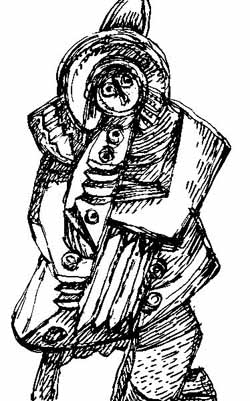
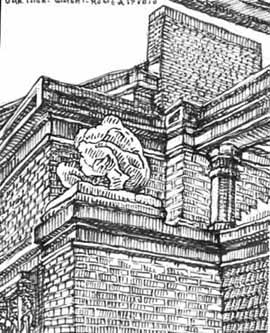
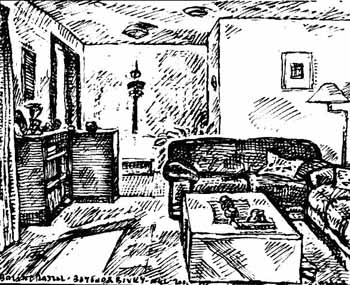
_kis.jpg)
